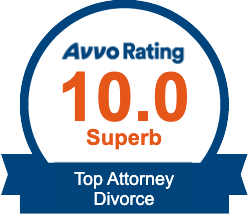The internet is a great tool for connecting with people and conducting business. It has changed the way we live and work. With the invention of smart phones and apps, the internet is with us constantly. Unfortunately, the benefits and usefulness of the internet come with a cost. One of these costs is that some people use the internet to harass, bully and stalk others. These culprits think that the internet makes them anonymous and that being anonymous will protect them from civil and criminal penalties of their actions. Too often the victims of these cyber criminals feel that there is no hope to identify the the culprit and to stop them. The attorneys at Allison & Mosby-Scott are skilled in tracking down and stopping people who think they can use the internet to harass, bully and stalk others. Allison & Mosby-Scott has a proven track record in this field and are available to help clients recover civil damages and pursue criminal charges against cyber criminals.
Cyber Harassment, Cyber Bullying, Cyber Stalking
What is Cyber Harassment, Cyber Bullying and Cyber Stalking?
Cyber harassment is the use of the internet to harass, manipulate, control, intimidate, frighten, embarrass, humiliate or disparage a person or business. Generally, when cyber harassment involves minors it is referred to as “cyber bullying.” Cyber stalking generally involves the same conduct as cyber harassment, but has an element of direct or implied threat of physical harm. Sometimes cyber stalking and cyber harassment are also accompanied by offline or real harassment or stalking.
What are examples of Cyber Harassment, Cyber Bullying and Cyber Stalking?
Examples can include such things as:
- Making false accusations or information online;
- Posting information online that amounts to defamation, slander and libel;
- Making on-line threats;
- Making sexual solicitations;
- Identity theft; and
- Creating false online profiles on social media sites (Facebook, LinkedIn, Twitter, Snapchat, etc.).
Aren’t there laws that protect me against Cyber Harassment, Cyber Bullying and Cyber Stalking?
Several states have passed anti-cyber stalking laws. There are also various state laws on anti-stalking, slander and harassment in general that may also make cyber stalking illegal. Currently, there is no US Federal law directly relating to cyber stalking.
In Illinois, the following laws may make cyber harassment illegal:
The problem with relying on Illinois State law to protect you is two-fold. First, parts of the Illinois’ stalking and cyberstalking statutes have been found unconstitutional in 2016 by an Illinois Appellate Court in the case of People v. Relerford. While the case awaits a final determination from the Illinois Supreme Court, State’s Attorney Offices are reluctant to charge people under these laws. Secondly, and probably more importantly, victims will find that local law enforcement are not equipped to unmask anonymous cyber culprits. While law-enforcement may be sympathetic to victims of cybercrimes, unless the victim can positively identify the cyber harasser there is sometimes little law enforcement can do.
If the Criminal Justice System Won’t Protect Me or My Business Against Cyber Harassment, What Else Can I Do?
The attorneys at Allison & Mosby-Scott are skilled at using the civil justice system to track down and unmask those who engage in cyber harassment, cyber bullying and cyber stalking. Once identified, Allison & Mosby-Scott can help its clients in getting orders of protection and in seeking civil and monetary penalties against the harasser.



